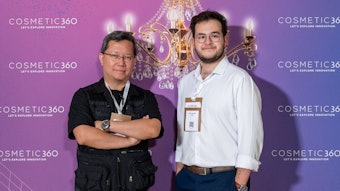
Quorum sensing has recently emerged a potential target to engage and manipulate the skin's microbiome—essentially, by controlling the communication between microbial entities. New research published by Trends in Microbiology could support this approach.
Scientists from the Fischell Department of Bioengineering, Institute for Bioscience and Biotechnology Research, and Robert E. Fischell Institute for Biomedical Devices, all of the University of Maryland College Park, report that synthetic biology could be used to design cocultures of microbes with predictable behavior to study quorum sensing. This would provide a deeper understanding of natural microbe consortia communication, potentially enabling its manipulation for positive skin care, health or environmental outcomes.
According to the abstract, the authors review synthetic biology strategies in the article both to study social interactions in well-defined systems and to manufacture molecular products to manipulate quorum sensing.
See related (free) webcast: Microbe-powered Skin Care, Pre-, Pro- and Post-biotics










